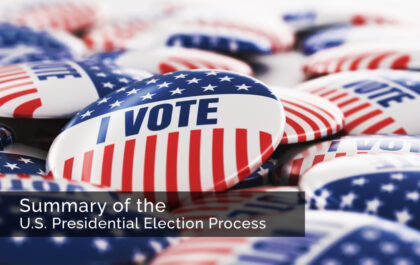The global ketamine treatment for PTSD market was valued at $306.41 million and is expected to grow at a compound annual growth rate of 43.74%.
A groundbreaking development in mental health therapy has arisen. Ketamine is a well-known anesthetic and recreational drug. It has changed from its usual medical applications to a unique way of controlling and treating PTSD.
Ketamine for complex PTSD makes a difference in how mental health providers address this complex disorder. We will discuss how ketamine is changing PTSD Treatment. We will also explore the landscape of PTSD therapy.
Table of Contents
Rapid Onset of Relief
The quick start of recovery from ketamine therapy for PTSD is one of its most remarkable features. It might take weeks to take effect. Ketamine generally produces changes within hours or days. This immediacy may be life-changing for people dealing with the severe symptoms of PTSD.
Targeting Treatment-Resistant PTSD
A proportion of people suffering from PTSD do not react well to traditional therapy. Ketamine therapy provides hope for patients suffering from treatment resistance, and its distinct mode of action helps to avoid the restrictions of typical cures. It makes it an enticing choice for people who have exhausted all other options.
Neural Pathway Reset
Another factor in ketamine infusion for PTSD treatment is its effect on neural pathways. It works by rewiring neural connections linked to traumatic memories. It lowers their emotional charge and intensity.
It can result in reduced anguish and anxiety when reminded of the event. You might look for a particular location of ketamine therapy center that offers a variety of services, including ketamine infusion treatments. This way, you’ll see for yourself the benefits it offers.
NMDA Receptor Modulation
The NMDA receptor is essential to learning and memory processes. The interaction of ketamine with these receptors appears to promote a process known as synaptic plasticity. It enables the brain to build new connections and adapt to changing conditions.
This modulation may help reduce PTSD symptoms. It may also improve the brain’s ability to process and integrate stressful experiences.
Managing Depression and Anxiety
Other mental health issues, such as sadness and anxiety, coexist with PTSD. Ketamine’s distinct pharmacological features make it useful in treating the signs of these diseases. Its all-encompassing approach to treatment tackles several areas of a patient’s mental health.
Enhanced Therapeutic Insights
During therapy sessions, ketamine administration has been shown to increase introspection and self-awareness. Individuals in this altered state of awareness may be able to examine their painful memories and emotions. It also leads to breakthroughs in their healing path.
Reduced Suicidal Ideation
Suicidal thoughts are a troubling condition that is connected with severe PTSD. Ketamine therapy has been demonstrated in studies to reduce suicidal thoughts and inclinations. It gives essential respite and buys time for set treatments to take effect.
Personalized Treatment Plans
Every person’s PTSD experience is unique. Ketamine therapy enables a more individualized approach to rehabilitation. Dosage and treatment frequency may be tuned to the needs of each patient. It also results in a more effective and personalized therapeutic experience.
The Remarkable Benefits of Ketamine Treatment for PTSD Patients
The effective use of ketamine treatment for PTSD has helped many suffering from the disorder. Its success has inspired more study. As new choices for improved therapy become available, we must move quickly. Look into the possible benefits of ketamine for anxiety and PTSD as a therapy option.
Related posts
When was the first presidential election in the US?
The election process in the world’s most powerful nation, the US, has come a long way. Various amendments have been made to the Constitution that allowed black men, white women and other disadvantaged groups to participate in the elections. Further amendments during the 60s and…
Tips & Trick For Healthy Glowing Skin
Lorem ipsum dolor sit amet, consectetur adipiscing elit. Nam laoreet, nunc et accumsan cursus, neque eros sodales lectus, in fermentum libero dui eu lacus. Nam lobortis facilisis sapien non aliquet. Aenean ligula urna, vehicula placerat sodales vel, tempor et orci. Donec molestie metus a sagittis…
My Fight With Depression. Concussions
Lorem ipsum dolor sit amet, consectetur adipiscing elit. Nam laoreet, nunc et accumsan cursus, neque eros sodales lectus, in fermentum libero dui eu lacus. Nam lobortis facilisis sapien non aliquet. Aenean ligula urna, vehicula placerat sodales vel, tempor et orci. Donec molestie metus a sagittis…
Top 10 most visited tourist places in the world
Lorem ipsum dolor sit amet, consectetur adipiscing elit. Nam laoreet, nunc et accumsan cursus, neque eros sodales lectus, in fermentum libero dui eu lacus. Nam lobortis facilisis sapien non aliquet. Aenean ligula urna, vehicula placerat sodales vel, tempor et orci. Donec molestie metus a sagittis…
How Digital Health Technology Is Beneficial?
Digital health revolves around the usage of diverse technological platforms including mobile health, teen health, configurable remote patient monitoring, etc to improve the connection between the patients and the doctors. Across the healthcare system, the horizon and scope of digital health have helped create opportunities…
How Latest Farmtrac Tractors are Improving Farming in India?
India mostly relies on farming, and a large part of the population depends on it for their livelihoods. Recently, there’s been a big shift towards using modern farming techniques and machinery to make farming more productive and efficient. A good example of this is the…
Dispelling Myths: Demystifying Rx Waste and Expiration Dates – WasteX Pharmaceutical Waste Disposal Separates Fact from Fiction
The specter of “expired” medication looms large, conjuring images of potent chemicals wreaking havoc on water sources and ecosystems. But before you panic toss that bottle of pills, let’s delve into the truth about pharmaceutical waste and expiration dates, separating fact from fiction. At WasteX…
Sustainable Living in Memphis: Green Initiatives and Eco-Friendly Hotspots
Memphis, a city known for its rich cultural heritage and vibrant atmosphere, is increasingly becoming a hub for sustainable living. As environmental awareness continues to grow, residents and businesses in Memphis are embracing green initiatives and fostering eco-friendly practices. Let’s explore the city’s commitment to…
Today's pick
Hot topics
Stay connected
Meet the Author

Gillion is a multi-concept WordPress theme that lets you create blog, magazine, news, review websites. With clean and functional design and lots of useful features theme will deliver amazing user experience to your clients and readers.
Learn moreCategories
- Animals (7)
- Apps & Softwares (8)
- Automotive (8)
- Beauty (8)
- Business (141)
- Cars (12)
- Cartoon (3)
- Cook (4)
- Cooking (1)
- Design (8)
- Economy (6)
- EDUCATION (25)
- Entertainment (16)
- Fashion (23)
- Fitness (2)
- Food (16)
- Gaming (51)
- Guide (20)
- Health (119)
- Home (52)
- Home improvement (12)
- Interior (3)
- Law (16)
- Life (1)
- LifeStyle (99)
- Marketing (5)
- Motivation (9)
- Movie (6)
- Movies (1)
- Music (3)
- News (8)
- Painting Art (1)
- People (15)
- Photography (7)
- Review (113)
- Services (7)
- Social Media (6)
- Sport (9)
- Sports (12)
- Style (10)
- Swimming (1)
- Tech (125)
- Travel (26)
- Uncategorized (17)
- Vape (5)
- Western (3)
- World (2)










